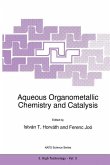Well tailored metal catalysts are catalysts of the new generation resulting from scientific development at the boundary between homogeneous and hetero geneous chemistry. The main factors involved in making tailored metal catalysts are not those of traditional impregnation in which the chemistry is in general unknown and ill-defined, or of simple ion exchange which involves long-range forces with little control on the local structure through definite and special bond direction. Tailored Metal Catalysts thus has a rather different emphasis from normal review publications in the field of catalysis. Here we concentrate more on the distinct surface chemistry and catalytic properties of important established materials with well-characterized active structures or precursors, although at the same time providing a systematic presentation of relevant data. Many pioneering works have been undertaken in the field of tailored metal catalysts since the early research on polymer-attached homogeneous metal complexes by the British Petroleum Company Ltd. and the Mobil Oil Corpora tion around 1969; transition metal complexes attached on polymers by Grubbs (1971), Heinemann (1971), Manassen (1971), Pittman (1971), Bursian et al. (1972), Kagan (1973), Bailar (1974); transition metal complexes attached on inorganic oxides by Allum et al. (1972), Ballard (1973), Candlin and Thomas (1974), Murrell (1974), Yermakov (1974); metal carbonyls/polymers by Moffat (1970); metal carbonyls/inorganic oxides by Parkyns (1965), Davie et al. (1969), Banks et al. (1969), Howe (1973), Burwell (1975); metal carbonyl clusters/ polymers by Colhnan (1972); metal carbonyl clusters/inorganic oxides by Robertson and Webb (1974), Anderson (1974), Smith et al. (1975).
Bitte wählen Sie Ihr Anliegen aus.
Rechnungen
Retourenschein anfordern
Bestellstatus
Storno









